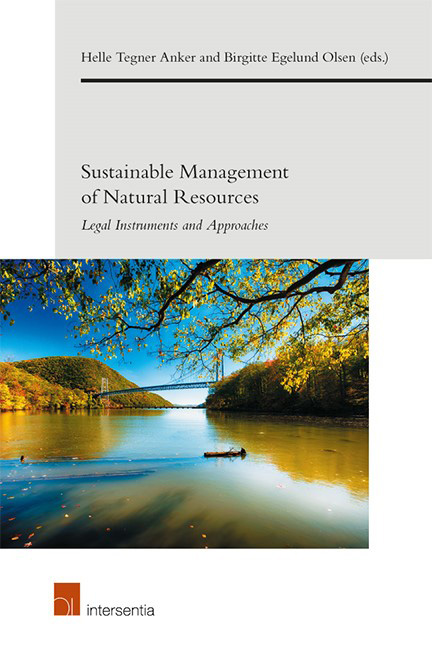Book contents
- Frontmatter
- Contents
- PART I INTRODUCTION
- PART II SUSTAINABILITY IN EU AND INTERNATIONAL LAW
- Chapter 2 Sustainable Management of Natural Resources by the EU
- Chapter 3 Squaring the Circular Economy: Towards More Coherence in the EU Sustainable Management of Natural Resources
- Chapter 4 Judicial Review of the Environmental Performances of the EU Agricultural Policy
- PART III SUSTAINABLE MANAGEMENT OF WASTE
- PART IV ENVIRONMENTAL AND CLIMATE LITIGATION
- PART V ECOSYSTEM APPROACHES AND ADAPTIVE MANAGEMENT
- PART VI SUSTAINABLE RESOURCE MANAGEMENT: SPECIFIC ISSUES 193
Chapter 4 - Judicial Review of the Environmental Performances of the EU Agricultural Policy
from PART II - SUSTAINABILITY IN EU AND INTERNATIONAL LAW
Published online by Cambridge University Press: 31 January 2019
- Frontmatter
- Contents
- PART I INTRODUCTION
- PART II SUSTAINABILITY IN EU AND INTERNATIONAL LAW
- Chapter 2 Sustainable Management of Natural Resources by the EU
- Chapter 3 Squaring the Circular Economy: Towards More Coherence in the EU Sustainable Management of Natural Resources
- Chapter 4 Judicial Review of the Environmental Performances of the EU Agricultural Policy
- PART III SUSTAINABLE MANAGEMENT OF WASTE
- PART IV ENVIRONMENTAL AND CLIMATE LITIGATION
- PART V ECOSYSTEM APPROACHES AND ADAPTIVE MANAGEMENT
- PART VI SUSTAINABLE RESOURCE MANAGEMENT: SPECIFIC ISSUES 193
Summary
ABSTRACT
In the 2013 EU Common Agricultural Policy (CAP) reform, the attention paid to the environmental impact of the EU CAP and the fight against climate change became a key concern for the EU legislator. However, an assessment of the outcomes of the measures put in place to this aim reveals that the results achieved are unsatisfactory, particularly with reference to the substantial resources shown to have been consumed. While waiting to see – particularly in the light of the Commission Communication of November 2017 – if in the future CAP the main mistakes are corrected, this chapter will examine whether and to what extent the failure by the EU legislator to address the environmental impact of the EU agricultural policy may be challenged before the European Court of Justice.
INTRODUCTION
As far as the EU agricultural policy is concerned, the recurrent leitmotiv is that the wide discretion accorded to the EU legislator is justified by the political sensitivity of the subject matter, which implies the consideration of several intertwined factors and delicate political choices. Therefore, while keeping in mind the division of powers between the legislator and the judiciary, this contribution aims – on the one hand – at taking stock of the situation concerning the extent of the judicial review of secondary legislation in the light of existing case-law; and – on the other hand – at exploring the matter of whether and to what extent some general principles of EU law or provisions having general application may suggest coming to a different interpretative solution. This, as will be seen, is particularly relevant with regard to an assessment of the legality questions related to the principles of proportionality and the principle of environmental integration, as well as the requirement to state reasons.
It is worth remembering that on 29 November 2017 the new Communication on the future of food and farming was published, which also endeavours to bring some changes to the way the CAP should tackle the environmental challenge. Amongst other things, this policy document purports to undertake a so-called ‘delivery model’ vis-a-vis several aspects of the CAP, including its environmental performance. Time will tell whether and to what extent the resolutions of this Communication will give rise to real commitments.
- Type
- Chapter
- Information
- Sustainable Management of Natural ResourcesLegal Instruments and Approaches, pp. 49 - 62Publisher: IntersentiaPrint publication year: 2018
- 1
- Cited by



